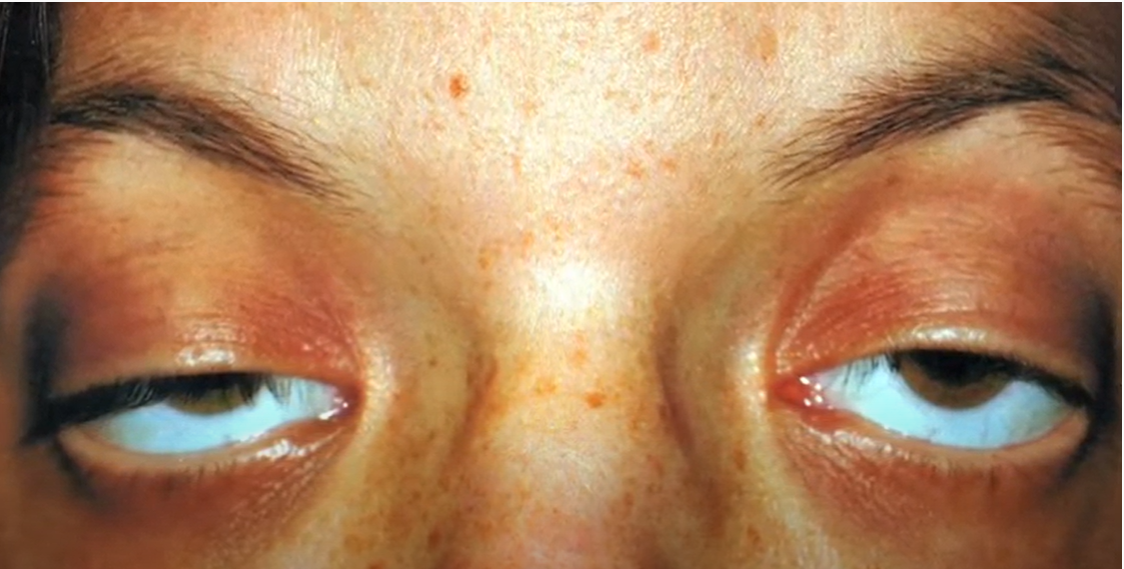Thyroid Eye Disease may be due to Graves’ Disease or other thyroid abnormalities. The condition causes inflammation in the muscles and soft tissues of the eye socket. This inflammation causes your eyeballs to bulge from their sockets and can be severe enough to result in vision loss. Extraocular muscles that control movement may be affected and can lead to muscle enlargement, restriction, or even double vision.
Symptoms may include
- Pain when looking up, down, or sideways
- Swelling of the orbital tissues
- Dry eyes
- The sensation of grit or irritation in the eye
- Bloodshot eyes
- Double vision
- Light sensitivity
- Difficulty moving the eye
- Impaired vision
Common presentations of thyroid eye disease include bulging or proptosis of the eyes. Thyroid eye disease problems may involve the eyelids and the orbit.

The “eye socket” or orbit is made of bone. Therefore when swelling occurs, there is nowhere for it to be accommodated. This will cause the eye to move forward and protrude. In some cases, there may be associated lid retraction, meaning that the “white of the eyes” is exposed, leading to redness, irritation, and pressure. Due to these muscles swelling and restricted movement, there may also be double vision.
A corneal ulcer can cause scarring and lead to permanent vision loss. Severe cases where protrusion of the eyelids makes it challenging to close your eyes may signify a corneal ulcer. Due to the severity of these risks, aggressive techniques such as orbital bone decompression surgery may be performed to create more space in the orbit.
Thyroid Eye Disease may require medical and surgical treatment. Active unstable thyroid eye disease is initially treated medically, and surgery is performed on the eyelids to induce clinical stability of the lids. There may be a necessity for eye muscle surgery for double vision. In rare cases, Thyroid Eye Disease can compromise vision, and treatments may entail intravenous medication or radiation. Surgical decompression of the orbit could also be needed.
If you have experienced any of the symptoms associated with thyroid eye disease, contact the Fort Lauderdale Eye Institute to schedule an appointment.
Our own Dr. Gil Epstein is a fellowship-trained, board-certified ophthalmic surgeon who performs all cosmetic and reconstructive oculoplastic procedures at the Fort Lauderdale Eye Institute. He is certified by the American Board of Ophthalmology and is a member of the American Society of Ophthalmic Plastic and Reconstructive Surgery.






